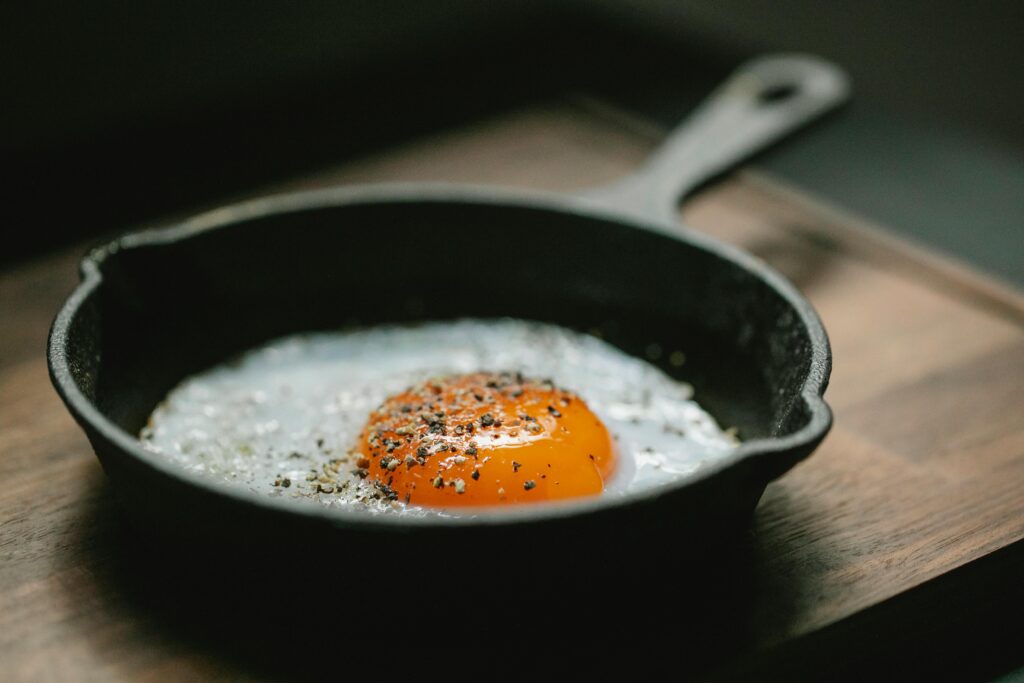Top 12 Foods to Eat for Serious Muscle Gains
Building muscle isn’t just about lifting weights; it’s also about fueling your body with the right nutrients.
The food you eat plays a crucial role in muscle growth, providing the necessary proteins, fats, and carbohydrates to support your workouts and recovery.
Here’s a comprehensive look at the top 12 foods you should incorporate into your diet for serious muscle gains.
1. Chicken Breast
Chicken breast is a staple in the bodybuilding community and for a good reason. It’s packed with high-quality protein, which is essential for muscle repair and growth.
A 100-gram serving of chicken breast provides approximately 31 grams of protein. Additionally, it’s low in fat, making it a lean source of protein that can be easily incorporated into various dishes.
How to consume:Grill, bake, or stir-fry chicken breast with your favorite vegetables and seasonings. It’s versatile and can be used in salads, wraps, or paired with a healthy grain like quinoa or brown rice.
2. Salmon
Salmon is not only rich in protein but also in omega-3 fatty acids, which help reduce muscle inflammation and improve muscle recovery. A 100-gram serving of salmon contains about 20 grams of protein and is a great source of healthy fats.
How to consume:Baked, grilled, or poached salmon can be paired with a side of steamed vegetables and whole grains. Smoked salmon can also be added to salads or sandwiches.
3. Eggs
Eggs are often considered the perfect protein source. They contain all nine essential amino acids, which are the building blocks of muscle. One large egg provides about 6 grams of protein and is also rich in vitamins and minerals that support overall health.
How to consume:Eggs can be prepared in various ways, such as scrambled, boiled, poached, or made into omelets. They can also be added to smoothies or salads for an extra protein boost.
4. Greek Yogurt
Greek yogurt is an excellent source of protein, probiotics, and calcium. It contains more protein than regular yogurt, with about 10 grams of protein per 100 grams. The probiotics in Greek yogurt also support gut health, which is crucial for nutrient absorption.
How to consume:Enjoy Greek yogurt with fresh fruits, nuts, or honey for a nutritious snack. It can also be used in smoothies, as a base for salad dressings, or in baking.
5. Quinoa
Quinoa is a complete protein, meaning it contains all nine essential amino acids. It’s also rich in complex carbohydrates, which provide sustained energy for your workouts. One cup of cooked quinoa provides about 8 grams of protein and is also a good source of fiber and magnesium.
How to consume: Quinoa can be used as a base for salads, mixed into stir-fries, or served as a side dish. It’s also a great alternative to rice or pasta.
6. Lean Beef
Lean beef is a powerhouse of protein, creatine, and iron. A 100-gram serving of lean beef contains about 26 grams of protein, along with essential vitamins like B12, which supports red blood cell production and energy levels.
How to consume:Grill, broil, or stir-fry lean beef and serve it with a side of vegetables and whole grains. Ground beef can also be used in tacos, burgers, or meatballs.
READ ALSO; 10 Health-Packed Snacks That Will Surprise Your Taste Buds
7. Cottage Cheese
Cottage cheese is rich in casein protein, which is a slow-digesting protein that provides a steady supply of amino acids to your muscles. A 100-gram serving of cottage cheese offers about 11 grams of protein, along with calcium and other essential nutrients.
How to consume: Enjoy cottage cheese as a snack with fruit or nuts. It can also be used in smoothies, as a topping for baked potatoes, or mixed into pasta dishes.
8. Tuna
Tuna is a convenient source of high-quality protein and omega-3 fatty acids. A 100-gram serving of tuna provides around 30 grams of protein, making it an excellent option for muscle building.
How to consume: Use canned tuna in salads, sandwiches, or wraps. Fresh tuna can be grilled or seared and served with vegetables and whole grains.
9. Almonds
Almonds are a great source of healthy fats, protein, and fiber. They also provide important vitamins and minerals like vitamin E and magnesium, which support muscle function and recovery. A 28-gram serving (about 23 almonds) contains approximately 6 grams of protein.
How to consume:Snack on a handful of almonds, add them to yogurt or oatmeal, or incorporate them into homemade protein bars.
10. Brown Rice
Brown rice is a complex carbohydrate that provides long-lasting energy. It’s also a good source of fiber and essential nutrients like magnesium and B vitamins. One cup of cooked brown rice contains about 5 grams of protein.
How to consume:Use brown rice as a base for stir-fries, grain bowls, or as a side dish with your favorite protein source.
11. Lentils
Lentils are an excellent plant-based protein source, offering about 18 grams of protein per cooked cup. They’re also rich in fiber, iron, and folate, which support overall health and muscle function.
How to consume: Add lentils to soups, stews, or salads. They can also be used in veggie burgers or as a meat substitute in tacos and burritos.
12. Spinach
Spinach might not be the first food you think of for muscle building, but it’s incredibly nutrient-dense. It’s high in vitamins A, C, K, and folate, as well as iron and calcium. These nutrients support overall health and muscle function.
How to consume:Add spinach to smoothies, salads, or omelets. It can also be sautéed as a side dish or mixed into pasta dishes and casseroles.
Conclusion
Incorporating these top 12 foods into your diet can significantly enhance your muscle-building efforts. Remember, consistency is key.
Alongside a balanced diet rich in these muscle-building foods, ensure you’re following a structured workout regimen, getting adequate rest, and staying hydrated. Combining these elements will set you on the right path to achieving serious muscle gains and overall health improvements.

